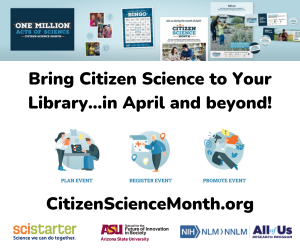Shifting Expectations for Staff in a 21st Century Library

This article is written by a thirty-one-year-old director of a public library. My life experiences have shaped who I am as an employee and who I’ve become as a boss. I am part of the largest living generation, born between 1981 and 1997 1 and have been raised to expect and adjust to a constantly shifting technological landscape. Generational divisions often play out in the workplace, but rarely have they drastically altered the concept of work itself. Millennials are digital natives in the true sense, but the influence of Facebook, Google, and Amazon isn’t limited to phones. Much like the automobile industry reinvented work in the early twentieth century, today’s tech companies have reinvented it once again. To stay competitive in the today’s attention economy, it’s imperative that we pay attention.
It’s no secret that young people are always connected. In 2014, 85 percent of 18 to 24-year-olds and 86 percent of 25-34-year-olds owned a smartphone. 2 These devices have become inextricably linked to our daily life with much of our scheduling, emailing, and picture-taking dependent on their accessibility. What was once taboo, having your cell phone out at work is now incredibly common and, in some cases, expected. Even many high schools have given up on policing cell phone use and instead focus on incorporating devices into the learning environment. There is certainly something to be said about remaining focused on work and not constantly being distracted by the siren call of the next tweet, but management is now about embracing and supporting the positive use of technologies and mitigating the unproductive use. Staff are going to use their phones at work and that’s okay.
Those attracted to the library profession are an interesting mixed breed of free-speech superheroes who also really like to follow the rules. The concept of disruption has been the hallmark of many tech startups as they’ve single-handedly turned major industries on their head with companies like Airbnb, Amazon, and Uber (just to name a few). Public libraries have always been a bit of a radical concept, but they tend to be slow to move away from outmoded practices. As much of library funding is in constant turmoil you’d think that agility would be built into their DNA. Unfortunately, instead you’re sometimes left with a thrifty dedication to flying under the radar for fear of reminding city officials that you exist and that you cost money. Since disruption costs money, it’s a tough concept in library-land.
There are ways however in which library tradition is being disrupted. The talk of eliminating fines is an interesting challenge to one of the hallmarks of library services.3 Many libraries are now offering unlimited renewals on items with no holds and some of the boldest libraries have eliminated physical books altogether.4 Disruption as a motivating force brings with it some uncomfortable truths. Jobs will change, criticism will be encouraged, and failure is a real possibility. As a new generation rises through the ranks and obtains positions of leadership, I hope we boldly face these opportunities as catalysts for a brighter future. When we share radical ideas and encourage critical thinking we progress. We progress as a library and as a community.
References
[1] http://www.pewresearch.org/fact-tank/2016/04/25/millennials-overtake-baby-boomers/
[2] http://www.nielsen.com/us/en/insights/news/2014/mobile-millennials-over-85-percent-of-generation-y-owns-smartphones.html
[3] https://americanlibrariesmagazine.org/blogs/the-scoop/imagining-fine-free-future/
[4] https://www.washingtonpost.com/news/innovations/wp/2014/12/16/libraries-without-physical-books-find-a-niche-in-san-antonio/?utm_term=.e554f5b22b19
Tags: change at the library, library environment, library updates, millennial library director, modernizing the library, multigenerational, working in a library







